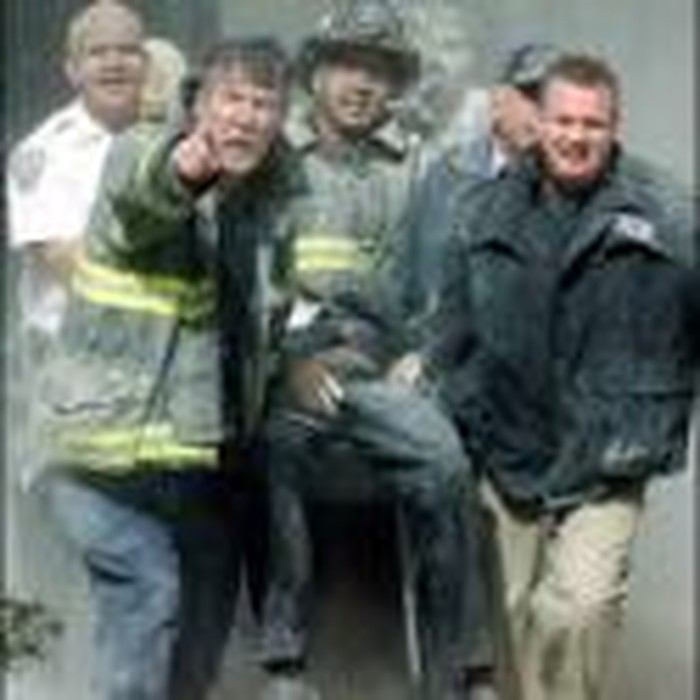Drive-by Evangelism, or Missional Rescue Force?
- Michael Craven Center for Christ & Culture
- Updated Jul 01, 2008

While surveying the news recently, I came across a small but disturbing story that grabbed my attention. A California pediatrician reportedly refused to treat a baby girl because her mother had tattoos. The doctor, whose name I won’t mention, says “his Christian faith has inspired him to enforce certain standards in his medical practice, and that means no tattoos, no body piercings, and no gum chewing.” The article goes on: “After taking one look at Tasha Childress, who has both tattoos and piercings, [the doctor] asked her and her daughter to leave.” The shunned mother, speaking about her daughter, said, “She had to go that entire night with her ear infection with no medicine because he has his policy; it isn’t right.”
This action deeply troubled me and I hope it troubles you as well. However, it doesn’t completely surprise me either, given so much that is off the mark within American “Christian” culture. I realize it is “risky” to publicly criticize the church and/or the actions of other Christians, however, this should not prevent us from constructive critique when the public actions of some professing Christians are so obviously inconsistent with biblical teaching. I do, however, think some boundaries apply, which is why I see no need to publicly name this particular brother. The responsibility to personally confront this man’s conduct rests with the leadership of his local church.
What concerns me most is: what kind of culture has developed within the American Church to produce such legalistic thinking that it borders on the inhumane? Also, is this same legalistic, almost antagonistic culture present - in greater or lesser degrees - throughout the American Church? If so, why?
Sadly, I think it may be more prevalent than we might want to admit. I think some of this thinking can be attributed to what many 20th century churches came to effectively define and teach as the Church’s only mission in the world: evangelism. While the modern evangelical movement has much to commend it, one possible side effect, which is proving counterproductive, is the reduction of the Christian’s role in the world to nothing more than evangelism at its most basic level. In other words, the only thing that really matters is sharing the personal plan of salvation. The practical effect of this has been the substitution of immersion and engagement in the world, with programmatic “interactions” with the world — what I call “drive-by evangelism.” While there are a number of negative effects I could associate with this shift, suffice it to say, at the very least it has rendered Christianity less relevant by reducing it to nothing more than a “private” belief.
The modern-day reliance upon evangelism “programs” often results in formulaic, impersonal presentations that rely more on logic and less on love. Leonard Sweet here adds helpful insight:
I realize I am generalizing here and I am in no way suggesting that we should stop training Christians to share the gospel. However, the point I am pressing is related to what we understand our relationship to the world to be, how we share the “good news” and the attitude we have toward those outside the Church. True evangelism should be relational not operational! This theme of “two antagonists” meeting characterizes the mindset of many Christians I meet. They seem to see the world in terms of “us versus them,” when in fact, it is us versus him: Satan (Ephesians 6:12). This same attitude seems to explain the doctor’s ill-conceived policy. Call me crazy but I don’t see Jesus being very supportive of a policy that would allow children to suffer because of the appearance of their parents.
Christianity is not just a set of ideas or propositions to which one agrees; it is a lived faith that transforms individuals and the world. Following Christ encompasses every aspect of life and all of its ugliness, sorrow, and pain. It is precisely into this world of ugliness, sorrow, and pain, with its “tattooed and pierced” people, that we are to bring beauty, comfort, and mercy, working to redeem all of God’s creation! This means being “missional.”
So rather than being “evangelical” in the terms that Leonard Sweet describes, perhaps we should consider returning to being “missional” in the manner of our first and second century brothers and sisters.
What does it mean to be “missional”? Missional means: to participate in the mission of Jesus in the world, to incarnate in the experiences of our lives and our communities the good news of God’s love for the world. Being missional means we act more like a rescue force that is determined to stay until all are rescued rather than a commando unit which occasionally enters hostile territory to harass the enemy! Being missional means we endeavor to develop real and meaningful relationships with those that God, in His providence, has brought into our lives — to first demonstrate the love of Christ and then be ready with an answer for the hope that is within us.
A “missional” Christian doctor in the story above would have treated this child and showed Christ-like love and acceptance to Tasha, tattoos, tongue stud, and all! A missional Christian would have sent Tasha out saying, “I think that guy’s one of those Christians; he was so kind and I think he really cares about me and my daughter.” A missional Christian would have looked beyond the tattoos and piercings and saw a woman who bears the image of God.
Please Click
Here to view Michael's Crosswalk.com blog
Here to give Michael feedback on this article
Here to request e-mail delivery of Michael's weekly commentary
Here to subscribe to Michael's free podcast
Michael lives in the Dallas area with his wife Carol and their three children.
© 2007 S. Michael Craven



















